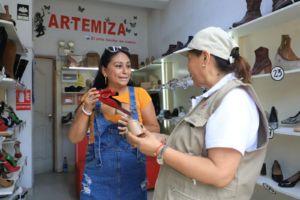
Limited access to financial services remains a significant challenge for micro, small and medium-sized enterprises (MSMEs), especially in emerging markets. According to the World Bank, approximately 1.4 billion people worldwide do not have access to banking services, a situation that reflects the gap in the global financial landscape. This lack of access not only affects individuals, but also severely limits opportunities for the microenterprises that form an essential part of developing economies.
In particular, the World Bank estimates that 345 million of the 400 million microenterprises in emerging markets operate informally. This situation prevents these enterprises from obtaining adequate financing, management tools and other financial resources that are crucial for their growth and formalization. Informality also reduces their ability to contribute fully to economic and social development, affecting their potential to expand operations, generate employment and improve the quality of life in their communities.

MSMEs are central to the global economy, accounting for 90% of all businesses, more than 70% of employment and approximately 50% of global GDP, according to the UN. This significant impact underscores the urgent need to improve access to financial services for these businesses. Without adequate access, MSMEs face difficulties in managing larger operations, fulfilling larger orders and adapting to growing demand, limiting their ability to grow and their impact on the global economy.
Lack of access to financial services also perpetuates economic inequality, as MSMEs operating informally are often composed of low-income or vulnerable entrepreneurs. Without the necessary resources, these entrepreneurs are less likely to improve their conditions and increase their participation in the formal economy. In addition, limited access to financing can restrict the ability of MSMEs to invest in innovation and efficiency, which is crucial for their competitiveness in the marketplace.

To overcome these barriers, it is essential to implement policies and programs that promote financial inclusion. This includes the development of financial services tailored to the needs of microenterprises and the strengthening of financial infrastructures that facilitate access to credit, advice and other financial tools. Only through these measures can we unlock the full potential of MSMEs and ensure that they continue to play their vital role in the global economy.







